Information and knowledge dissemination
Information and knowledge dissemination are essential components or results of our conducted research and development projects. In the context of R&D projects, we write policy briefings, action guidelines and practical handbooks. As part of the ERASMUS programme, we develop educational concepts and learning platforms together with our partners.
Our clients are the European Commission, federal ministries and agencies, and state governments.
The project "Innovations for a Climate-Smart Agriculture " (InnoCSA) aims to promote sustainable agricultural practices that help farms adapt to climate change and reduce greenhouse gas emissions. The project produces three outputs:
Details »

In the 21st century, it is completely normal to have your food delivered from all over the world. People have become accustomed to the fact that their meat, fruit and vegetables, or even their cookies and drinks travel thousands of kilometres before...
Details »
"Growing or dying" - this has long been used to describe the outlook for farms. The economic pressure of global food markets means that farms either have to grow in order to remain competitive, or give up if farmers cannot realize economies of scale....
Details »

While European agriculture is facing an ageing population with transmission issues, a new generation of farmers is rising: young people with no agricultural certification and without a farming background. These new farmers are seeking to develop a...
Details »
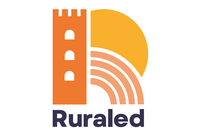
The concept of smart villages aims to maintain or increase the competitiveness of rural areas through intelligent networking between companies, civil society and public administration. A central role is played not only by infrastructures or digital...
Details »
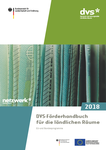
The funding handbook of the German Networking Agency (DVS) should be revised for the new EU funding period 2014 – 2020. A wide range of actors from the federal and state governments, funding banks such as the KfW-Bank and the Landwirtschaftliche...
Details »
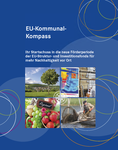
he current German state programs of the European Cohesion Politics 2014 – 2020 offer a wide range of support opportunities for protection and improvement of nature and environment. These instruments are directed at actors at the local level. However,...
Details »
The aim of this survey is a comparison of framework conditions for Danish farmers regarding environmental regulations with those of six neighbouring countries and/or regions (France, Poland, the Netherlands, Sweden, and Lower Saxony and...
Details »
The project “Synthesis and assessment of the public debate on the reform of the CAP after 2013” is a cooperative project between J. W. Goethe University Frankfurt/Main and the IfLS. It is supported by the Landwirtschaftliche Rentenbank.
The aim of...
Details »
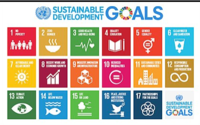
The United Nations Member States adopted the 2030 Agenda aiming at peace, prosperity and the preservation of ecosystems and the climate. To reach the Seventeen Sustainable Development Goals (SDGs) of the agenda targeted action on the local level is...
Details »
The arrangement of governance and institutional structures is a main success factor in implementing integrated rural development programs. This study analyzes German and European approaches and structures regarding integreated rural development in...
Details »
The EU and most of its member states have, for many years, provided financial assistance to those regions that have to cope with more adverse conditions or that are less competitive in the European Market. The moves towards economic and monetary...
Details »
The project "Innovations for a Climate-Smart Agriculture " (InnoCSA) aims to promote sustainable agricultural practices that help farms adapt to climate change and reduce greenhouse gas emissions. The project produces three outputs:
Details »
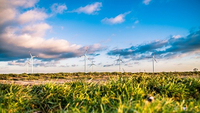
Within the framework of Sustainable Development Goals (SDGs), the international community strives for economic progress and social justice within ecological boundaries. The SDGs consist of 17 equal goals, including "clean and affordable energy",...
Details »






